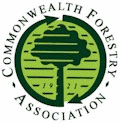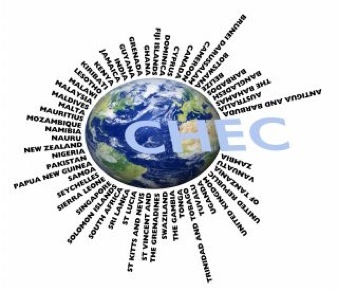Commomwealth organisations working in the area of environment and sustainability include the Commonwealth Forestry Association and the Commonwealth Human Ecology Council.
Commonwealth Forestry Association (CFA)
The Crib, Dinchope, Craven Arms, Shropshire SY7 9JJ, UK
Tel: +44 1588 672 868 | Fax: +44 870 011 6645 |Email: cfa@cfa-international.org | www.cfa-international.org
The mission of the CFA is to promote good management, use and conservation of forests and forest lands. Its vision is to promote the well-being of the world’s forests and those who benefit from them. Membership is open to nationals of all countries, not just Commonwealth countries.
Foundation: 1921 (as Empire Forestry Association)
Officers: Patron: Queen Elizabeth II; President: Jim Ball; Chair: John Innes; Vice-Chair: Reem Hajjar; Technical Director and Editor: Alan Pottinger
Commonwealth Human Ecology Council (CHEC)
Church House, Newton Road, Bayswater, London W2 5LS, UK
Tel: +44 20 7792 5934 | Fax: +44 20 7792 5948 | Email: chec@btopenworld.com | www.checinternational.org
Registered Charity No.: 272018
Founded in 1969 by Zena Daysh CNZM and Hon Doctorate University of Waikato (New Zealand), CHEC is accredited to the Commonwealth, has been an NGO in Special Consultative Status with the UN Economic and Social Council (ECOSOC) and is a Member, IUCN Commission on Education and Communication. Zena Daysh died on 23 March 2011; CHEC’s Governing Board has rededicated itself to continuing the charity’s work.
Officers: Honorary President: The Hon Levi Oguike (CHEC – Nigeria); Hon Patron: Emeritus Professor N R E Fendall (Liverpool School of Tropical Medicine); Vice-Chairman: Professor T K N Unnithan (Honorary President of CHEC – India); Hon Treasurer: John Bonham (CHEC – UK); Hon Secretary: Eva Ekehorn (CHEC – UK)
Members of the Governing Board are drawn from a wide variety of Commonwealth countries, including the UK.
Mission: CHEC adopts an integrated and holistic approach to thinking, understanding and decision-making, which is one of the keys to dealing with the complexities that are associated with human ecology. The opening paragraph of CHEC’s mission statement reads: ‘Human Ecology embraces the principles of natural and moral philosophy. It draws on knowledge and understanding from the sciences and humanities, to promote holistic, integrative, sustainable initiatives, ideas and developmental projects to enhance and strengthen people’s relationships with each other and the natural and built environment on which they depend.’ CHEC aims to continue to build and improve harmonious relationships between humans and nature through education, health, practical projects and advocacy among individuals, communities, organisations and governments throughout the Commonwealth and the wider world.
Activities
- CHEC commenced work in 2008 on the Commonwealth Fisheries Programme (CFP) (www.commonwealthfisheries.org). In 2010, CHEC reported on its research into governance of inshore fisheries and the sustainability of livelihoods in fisher-folk communities around the Commonwealth. In 2011, CHEC and its partner in this project, the Commonwealth Policy Studies Unit (since renamed Commonwealth Advisory Bureau, now part of the Institute of Commonwealth Studies), arranged an international meeting to consult on priorities for follow-up work. This concentrated on consolidating and applying the findings of the first phase of the CFP and worked to build partnerships for further work, including dissemination of the lessons that had been identified. Presentations were made to the Commonwealth People’s Forum Workshop on Climate Change, Environment and Disaster Management in Perth, Australia. A pamphlet was also circulated at CHOGM 2011 entitled ‘A Commonwealth Fisheries Policy: A Call to Action to Secure Sustainability for Livelihood, Food and Biodiversity’. The recommendations seem to have been reflected in both the CHOGM Communiqué and the Perth Declaration on Food Security Principles.
- Projects in Uganda and Tanzania, with the support of the Commonwealth Foundation, have been developed from discussions at the 2007 Kampala CHOGM with the Community Based Impact Assessment Network for Eastern Africa (CIANEA). These concerned training in gender mainstreaming in integrated water resources management and has led to the development of training manuals for Gender and Water Ambassadors, who are working on issues affecting poorer men and women within the Lake Victoria region. To follow up on this, CHEC has received a Commonwealth Foundation Special Grant for Women as Agents for Change for a workshop on ‘Capacity Building in Gender Mainstreaming in Water Resource Management’ to evaluate trainers and trainees working hand in hand in training sessions. This week-long workshop in January 2012 comprised 36 participants from various bodies drawn from Burundi, Kenya, Rwanda, Tanzania and Uganda.
- The year 2011 saw the conclusion of the European Union’s Intelligent Energy Europe three-year project ‘SAUCE – Schools at University for Climate Energy’ with the publication of the SAUCE Handbook and SAUCE Resources Guide (www.schools-at-university.eu). This project brings primary school children into universities to experience the higher education environment, and to see how they as children and through their later studies in the arts, social and natural sciences and technology can make a contribution to renewable energy provision and climate change adaptation and mitigation. CHEC, having supported the UK programme, is now seeking to support dissemination of the project to other Commonwealth countries, first through Cyprus and Malta as EU Commonwealth partners and then beyond through local and regional partner universities.
- With the Society for Human Ecology (SHE), based in the USA and Germany, and the School of Environment and Development at the University of Manchester (UK), CHEC is building follow-up work from its 2009 International Conference on ‘Human Ecology for an Urbanising World’ held in Manchester. Issue No. 23 of CHEC’s Human Ecology Journal, published in 2011, set out papers and outcomes emanating from this meeting and plans are in progress to take further activity forward.
Country Chapters: CHEC works through its Country Chapters and local contacts. These together cover all regions of the Commonwealth, and Chapters, all set up independently under CHEC’s umbrella, include Australia, Canada, The Gambia, India, Kenya, Malta, New Zealand, Nigeria, Pakistan, Sierra Leone, Sri Lanka and Uganda.
Other links: CHEC is a partner within ComHabitat and has partnership status with Habitat, the UN Centre for Human Settlements, and works actively to promote human settlements and rural development projects. It has been represented at the World Urban Forum in Rio de Janeiro (WUF 5). It publishes Human Ecology Journal and communicates its activities through CHEC Points and its Annual Report published each autumn.


